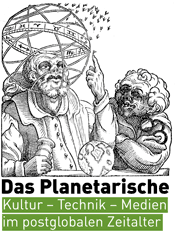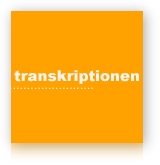SFB/FK-427 Medien und kulturelle Kommunikation
Veranstaltungen mit Prof. Dr. Peter Bogh Andersen (Universität Aarhus)
Berechnung und Entscheidung I: "Agents as actors"
Vortrag des Kulturwissenschaftlichen Forschungskollegs in Kooperation mit der KHM
Jenseits humanoider technischer Agenten und künstlicher Intelligenz: Agenten werden zu Akteuren, für die Kategorien der Effizienz weniger ausschlaggebend sind als solche der Spannung und Empathie.
Agents are models of acting entities, such as humans and robots. Modern agent technology employs classical techniques of artificial intelligence, but with a much more modest level of ambition. We are no longer interested in creating replicas of the human mind inside the machine, but in creating artifacts that can interact with humans in a useful or entertaining way. Aesthetic agents as we know them from numerous computer games should not be evaluated by criteria of efficiency but according to their ability to convey suspense, compassion, or empathy. In short: they should be constructed and evaluated as actors.
Mittwoch, 16.11.05, 18.00 Uhr
Klanglabor, Kunsthochschule für Medien, Filzengraben 8-10, Köln
Berechnung und Entscheidung II: "A semiotic view on programming and programming languages"
Workshop des Kulturwissenschaftlichen Forschungskollegs in Kooperation mit der KHM
Programme repräsentieren Algorithmen und Datenstrukturen, die Transformationen und Prozesse sowohl in Maschinen als auch Veränderungen der menschlichen Wahrnehmungs- und Handlungsmöglichkeiten auslösen. Ausgehend von C.S.Peirce und A. Ponzios Konzepten des Interpretanten wird die Dynamik der Zeichenrepräsentationen von Computersprachen diskutiert.
With a point of departure in the Peircean model below, I shall describe a broad collection of features in a modern object-oriented programming language (Python) as representations that evoke interpretants in machines and humans. In general, programs and program fragments represent algorithms and data structures that call forth processes of data transformations in machines, and processes of perception, action and reflection in humans. The machines' interpretant is guided by the syntactic and semantic rules of the programming language. The evoked processes correspond to Augusto Ponzio's interpretant of comprehension while the rules resemble his interpretant of identification.
The plural form 'processes' is crucial: the digital medium is unique in having a (possibly infinite) set of processes as its interpretant. Traditional media, like books and movies, normally only have one narrative interpretant. The notion of the sublime and unique piece of art is therefore challenged.
Another thing to be learned is that everything in a digital medium must be represented before it can exist. Thus, descriptions of the media product play a much more basic role than in traditional art. Only a few painters would make a detailed description of their picture in words before they paint it, but digital artists just have to accept the changed conditions.
Donnerstag, 17.11.05, 11.00-16.00 Uhr
Klanglabor, Kunsthochschule für Medien, Filzengraben 8-10, Köln
Veranstaltungstyp: Gastvorträge - Workshops
Zuletzt geändert am 12. Juni 2007 um 12:19 Uhr - Kontakt - Login zum Bearbeiten



